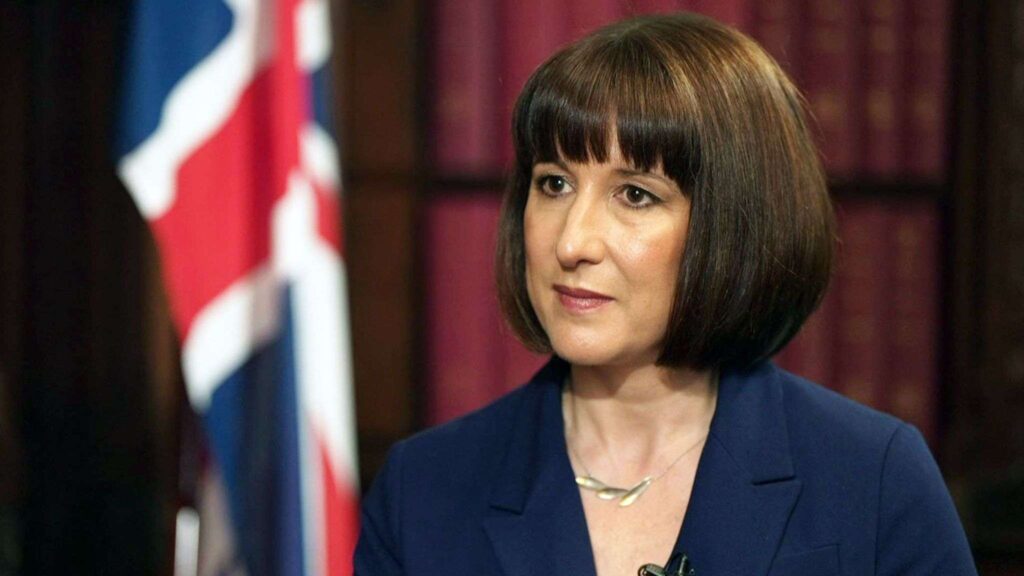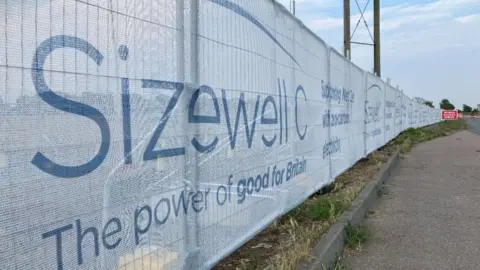The UK government has pledged an additional £14.2 billion ($19.25 billion) toward the construction of the Sizewell C nuclear power plant in Suffolk, southeast England, marking what it calls the “biggest rollout of nuclear power in a generation.”
This move forms part of the government’s broader spending review aimed at bolstering energy security, job creation, and climate action.
Chancellor Rachel Reeves made the announcement on Tuesday, stating that the project represents a cornerstone of the Labour government’s new approach to long-term energy resilience.
“This Labour Government is launching a new era of nuclear power here in Britain.
“This investment will deliver cleaner energy, greater security, and tens of thousands of skilled jobs for the British people.”
Chancellor Rachel Reeves
With the latest injection of funding, the UK government’s total commitment to Sizewell C rises to £17.8 billion, including £3.6 billion already invested prior to the current spending review.
Sizewell C will be only the second new nuclear power station to be constructed in Britain in more than two decades.
The first, Hinkley Point C in Somerset, developed by France’s EDF, has been plagued by cost overruns and delays.

Despite these challenges, Hinkley Point C is currently projected to begin operations in 2029, with a revised cost estimate between £31 billion and £34 billion, based on 2015 prices.
Sizewell C, which is modeled closely on Hinkley Point C, is expected to be 20% cheaper, according to EDF’s earlier estimates.
When complete, the Suffolk-based plant will generate enough electricity to power around 6 million homes and will create up to 10,000 jobs at the height of construction.
EDF UK CEO Simone Rossi welcomed the new funding commitment and affirmed the value of building on the lessons learned from Hinkley Point C.
“It is also a vote of confidence in Hinkley Point C, which has re-started the UK nuclear industry and built the experience and skills that will benefit Sizewell C.”
EDF UK CEO Simone Rossi
Investor Questions and Transparency Concerns

Despite the historic scale of the investment, critics have raised transparency issues, especially regarding the project’s overall cost and timeline.
The government has yet to disclose the full projected cost of Sizewell C or its expected completion date—omissions that have drawn concern from campaigners and opposition figures.
“With the continued secrecy about Sizewell C’s total cost, how can voters decide whether the £18 billion pledged to Sizewell C is a good use of their money?”
Alison Downes of the advocacy group Stop Sizewell C
The UK has long sought to attract additional investors into the Sizewell C project. However, the latest announcement did not include any new private or international financing partnerships.
The project initially began as a joint venture between EDF and China’s General Nuclear Power Group, but the UK government bought out the Chinese stake in 2022 due to mounting national security concerns.
As of December 2024, the UK government held an 83.8% stake in the project, while EDF owned the remaining 16.2%. Tuesday’s announcement is expected to further reduce EDF’s shareholding as public funding increases.

The renewed nuclear push comes at a time when Britain is facing twin pressures—decarbonizing its economy to meet net-zero targets and reducing its dependence on imported energy amid geopolitical uncertainties.
The Labour government views nuclear power as a critical part of its clean energy transition, especially in light of rising electricity demand, limitations of intermittent renewables like wind and solar, and the urgency to phase out fossil fuels.
The Sizewell C project is expected to play a pivotal role in achieving these aims, with nuclear providing baseload, low-carbon electricity to complement renewables.
With its renewed commitment to Sizewell C, the UK government is signalling a major turn in energy strategy—one that prioritizes nuclear power as essential to the country’s future.
Though questions about cost transparency and investor involvement remain, the sheer scale of public funding underscores the urgency and ambition of Britain’s clean energy agenda.
READ ALSO: Gov’t Tightens Grip on Rates, Sacrifices GH¢1bn in Bids as T-Bill Auction Misses Mark























